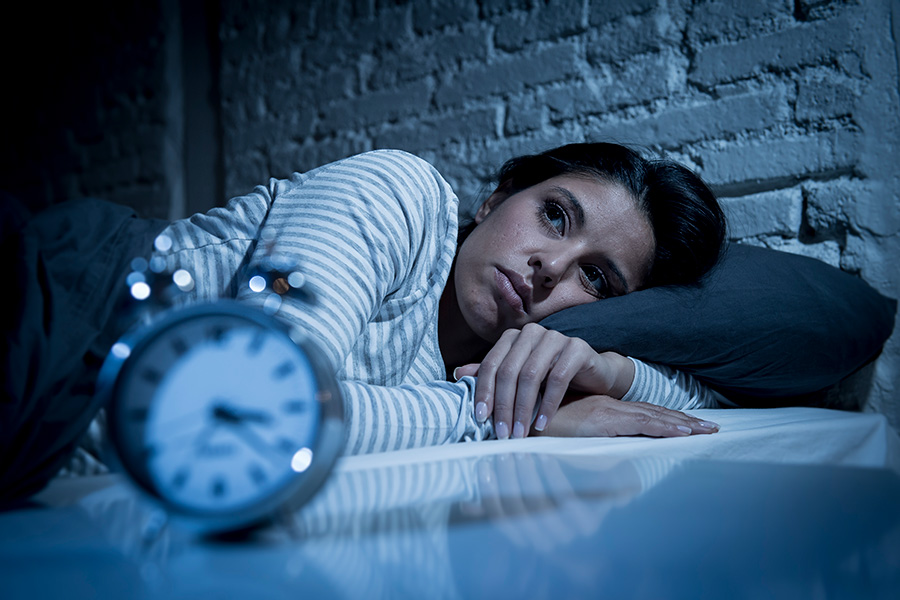Insomnia, the inability to fall asleep or stay asleep, can significantly impact your quality of life. Whether it’s a temporary phase or a chronic condition, insomnia can leave you feeling exhausted, irritable, and unable to concentrate. This comprehensive guide will cover various strategies and treatments to help you recover from insomnia and enjoy restful nights once again.
Understanding Insomnia
Types of Insomnia
- Acute Insomnia: Short-term, often caused by stress or a traumatic event.
- Chronic Insomnia: Long-term, occurring at least three nights a week for three months or more.
- Onset Insomnia: Difficulty falling asleep at the beginning of the night.
- Maintenance Insomnia: Difficulty staying asleep or waking up too early and not being able to go back to sleep.
Causes of Insomnia
- Stress and Anxiety: Work, school, health, or family issues.
- Depression: Insomnia can be a symptom of depression.
- Medications: Certain medications can interfere with sleep.
- Caffeine, Nicotine, and Alcohol: These substances can disrupt sleep patterns.
- Medical Conditions: Chronic pain, asthma, or arthritis.
- Environmental Factors: Noise, light, or uncomfortable temperatures.
- Poor Sleep Habits: Irregular sleep schedules, naps, stimulating activities before bed.
Strategies for Recovering from Insomnia
1. Establish a Consistent Sleep Schedule
- Go to Bed and Wake Up at the Same Time Every Day: This helps regulate your body’s internal clock.
- Avoid Sleeping In on Weekends: This can disrupt your sleep schedule.
2. Create a Relaxing Bedtime Routine
- Wind Down Before Bed: Engage in calming activities like reading or taking a warm bath.
- Limit Screen Time: Reduce exposure to blue light from phones, tablets, and computers at least an hour before bed.
3. Optimize Your Sleep Environment
- Make Your Bedroom Comfortable: Ensure your mattress and pillows are supportive and comfortable.
- Control Room Temperature: Keep your bedroom cool, around 60-67°F (15-19°C).
- Reduce Noise and Light: Use earplugs, blackout curtains, or a white noise machine if necessary.
4. Manage Stress and Anxiety
- Practice Relaxation Techniques: Meditation, deep breathing exercises, and progressive muscle relaxation.
- Consider Cognitive Behavioral Therapy for Insomnia (CBT-I): A structured program that helps you identify and replace thoughts and behaviors that cause or worsen sleep problems.
5. Be Mindful of Your Diet and Exercise
- Limit Caffeine and Nicotine: Avoid these substances in the afternoon and evening.
- Avoid Heavy Meals Before Bed: Have a light snack if you’re hungry.
- Exercise Regularly: Aim for at least 30 minutes of moderate exercise most days, but avoid vigorous exercise close to bedtime.
6. Use Sleep Aids Sparingly
- Over-the-Counter Sleep Aids: Use only as a short-term solution and consult a doctor.
- Prescription Medications: Only use under the guidance of a healthcare professional.
7. Seek Medical Advice
- Consult a Doctor: If insomnia persists, seek medical advice to rule out underlying health conditions.
- Sleep Studies: In some cases, a sleep study may be recommended to diagnose sleep disorders such as sleep apnea.
Behavioral and Cognitive Techniques
1. Stimulus Control Therapy
- Go to Bed Only When Sleepy: If you can’t sleep after 20 minutes, get out of bed and do a quiet activity.
- Use the Bed Only for Sleep and Intimacy: Avoid working, eating, or watching TV in bed.
2. Sleep Restriction Therapy
- Limit Time in Bed: Initially reduce the amount of time spent in bed to match your average sleep time, then gradually increase it.
3. Paradoxical Intention
- Try to Stay Awake: This technique can reduce anxiety about falling asleep.
4. Biofeedback
- Monitor Physiological Functions: Learn to control your body’s responses to stress.
Natural and Alternative Remedies
1. Herbal Supplements
- Chamomile, Valerian Root, and Lavender: Known for their calming effects.
2. Aromatherapy
- Essential Oils: Use a diffuser with lavender or chamomile oil to create a calming atmosphere.
3. Acupuncture
- Holistic Approach: May help reduce stress and improve sleep quality.
4. Yoga and Tai Chi
- Mind-Body Practices: Can enhance relaxation and improve sleep.
Maintaining Long-Term Sleep Health
1. Monitor Your Sleep Patterns
- Keep a Sleep Diary: Track your sleep habits to identify patterns and triggers.
2. Stay Active and Engaged During the Day
- Mental and Physical Activity: Stay active to promote better sleep at night.
3. Maintain a Healthy Lifestyle
- Balanced Diet and Regular Exercise: Support overall health and sleep quality.
4. Limit Alcohol and Sedatives
- Avoid Relying on Substances: These can disrupt sleep in the long term.
5. Stay Connected
- Social Interaction: Maintain healthy relationships and seek support when needed.
Conclusion
Recovering from insomnia involves a combination of lifestyle changes, behavioral strategies, and possibly medical interventions. By establishing a consistent sleep routine, optimizing your sleep environment, managing stress, and seeking professional help if necessary, you can overcome insomnia and enjoy restful, restorative sleep. Remember, the journey to better sleep takes time and patience, so be persistent and proactive in implementing these strategies. With the right approach, you can improve your sleep quality and overall well-being.
















